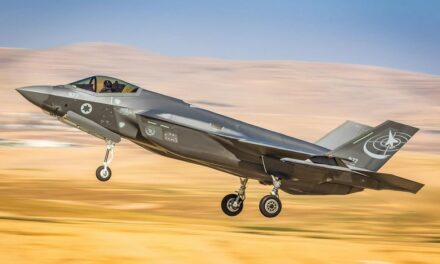We support our Publishers and Content Creators. You can view this story on their website by CLICKING HERE.
On Christmas Day, a Russian anti-aircraft missile apparently downed an Azerbaijani Airlines jet flying between Azerbaijan’s capital, Baku, and Grozny, the capital of Chechnya in Russia. The plane, whose final descent was widely filmed, crashed on landing at an airfield in Kazakhstan, on the opposite side of the Caspian Sea from its original destination. At least 38 passengers and crew died.
Evidence is overwhelming that Russian troops were responsible for the crash. The passenger jet was hundreds of miles off course, perhaps because of Russian GPS jamming due to the war. Passengers filmed damage out the window, showing damage to the wing, and the fuselage showed telltale marks of shrapnel from a missile.
At the time of the tragedy, Azerbaijani President Ilham Aliyev was in St. Petersburg, attending a summit with Russian President Vladimir Putin. Aliyev rushed back to Baku in the face of the tragedy, and Putin expressed general condolences.
In the days that followed, however, Aliyev has both disgraced himself to his people and signaled to the world just how much under the Kremlin’s thumb he is.
As evidence mounts that a Russian missile downed the airline, Putin refuses to accept responsibility, and Aliyev is afraid to demand he does such an acknowledgment.
Instead, Azerbaijani Airlines uses weasel words such as “external interference” to explain the crash. That is the most ridiculous turn-of-phrase since Secretary of Homeland Security Janet Napolitano decided to rebrand terrorism “man-caused disasters.”
Making Putin’s efforts to avoid responsibility worse is the fact that this is not the first time Russia has downed a civilian jetliner.
At the tail end of the Cold War, the Soviet downing of Korean Air 007 brought the world closer to nuclear war than many at the time realized. Just over a decade ago, Russian partisans in Ukraine shot down Malaysian Air 17 en route from Amsterdam to Kuala Lumpur, killing all 298 onboard. Russia refused then to accept responsibility or to participate in an investigatory tribunal, although the Dutch Safety Board charged with investigating the tragedy concluded that a Russian Buk 9M38-series surface-to-air missile caused the crash. A joint investigation team with representatives from Australia, Belgium, Malaysia, the Netherlands, and Ukraine affirmed the findings.
None of the leaders of these countries were cowards; Aliyev, however, is. In comparison, he portrays himself as an ally of the West. Since the start of the Ukraine war, if not earlier, he has pivoted his foreign relations firmly away from the West and into Russia’s camp. Under Aliyev, Azerbaijan has become the chief conduit that Putin uses to evade sanctions. In effect, Aliyev appears to prioritize his cut of the sanctions evasion scheme over the interests of his people.
Azerbaijanis may have no choice; after all, they live in one of the world’s most brutal dictatorships, but the United States and European countries should make clear: Russia is responsible, and if Aliyev will not even demand Putin pay compensation to the families of those onboard, then perhaps it is time Azerbaijanis rise up and find another leader.
About the Author: Dr. Michael Rubin
Michael Rubin is a senior fellow at the American Enterprise Institute and director of policy analysis at the Middle East Forum. A former Pentagon official, Dr. Rubin has lived in post-revolution Iran, Yemen, and both pre- and postwar Iraq. He also spent time with the Taliban before 9/11. For more than a decade, he taught classes at sea about the Horn of Africa and Middle East conflicts, culture, and terrorism, to deployed US Navy and Marine units. Dr. Rubin is the author, coauthor, and coeditor of several books exploring diplomacy, Iranian history, Arab culture, Kurdish studies, and Shi’ite politics. The author’s views are his own.

 Conservative
Conservative  Search
Search Trending
Trending Current News
Current News 





